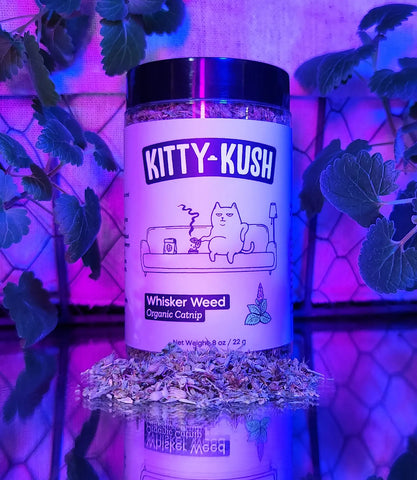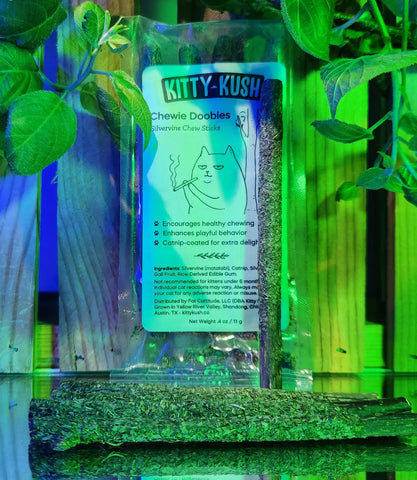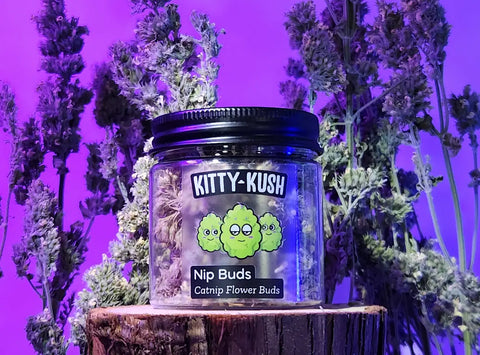- Introduction
- The Truth About Catnip
- Myth #1: Catnip is a Drug for Cats
- Myth #2: All Cats React to Catnip
- Myth #3: Catnip is Addictive for Cats
- Myth #4: Catnip Only Affects Domestic Cats
- Myth #5: Catnip Makes All Cats Hyperactive
- Myth #6: Catnip is a Recent Discovery
- Myth #7: Catnip is Only for Cats
- Conclusion
Introduction
Catnip, that mysterious herb that drives our feline friends wild, has been the subject of countless myths and misconceptions. In this article, we'll explore some of the internet's craziest claims about catnip and separate fact from fiction. Get ready to have your whiskers twitched as we dive into the world of catnip lore!
The Truth About Catnip
Before we delve into the myths, let's establish some facts about catnip:
-
Catnip (Nepeta cataria) is a perennial herb belonging to the mint family.
-
It contains nepetalactone, an essential oil responsible for cats' reactions.
-
Not all cats are affected by catnip; sensitivity is hereditary[1].
Myth #1: Catnip is a Drug for Cats
This is perhaps the most persistent myth about catnip. While cats may exhibit behaviors similar to those under the influence of drugs, catnip is not actually a drug in the traditional sense[1].
Reality: Catnip's effects are caused exclusively by its smell. The nepetalactone in catnip triggers a response in cats' olfactory systems, leading to their characteristic behaviors.
Myth #2: All Cats React to Catnip
Many people believe that every cat goes crazy for catnip. However, this is far from the truth.
Reality: Only about 70% of cats are sensitive to catnip. Kittens under 3-6 months old typically don't respond to catnip, and some adult cats are simply immune to its effects.
Myth #3: Catnip is Addictive for Cats
Some worry that their cats might become addicted to catnip if exposed too often.
Reality: Catnip is considered safe for cats and non-addictive. While cats can become accustomed to its effects if exposed too frequently, they won't develop an addiction[1].
Myth #4: Catnip Only Affects Domestic Cats
You might have heard that only our house cats are susceptible to catnip's charms.
Reality: Many big cats, including lions, jaguars, and leopards, also respond to catnip. Interestingly, tigers are known to have little to no response[1].
Myth #5: Catnip Makes All Cats Hyperactive
The image of a cat zooming around after exposure to catnip is common, but it's not the only reaction.
Reality: Catnip can have varied effects on cats. While some become energetic and playful, others may become mellow and calm.
Myth #6: Catnip is a Recent Discovery
Some believe that catnip is a modern invention for pet entertainment.
Reality: Catnip has a long history dating back to ancient civilizations. It was used in medicine and cooking by Ancient Romans and has been cultivated for centuries[2].
Myth #7: Catnip is Only for Cats
You might be surprised to learn that catnip isn't exclusively a feline affair.
Reality: Catnip has been used by humans for centuries in teas, herbal cigarettes, and cooking. It's also known to attract butterflies and repel certain insects[3].
Conclusion
As we've seen, the world of catnip is full of surprises and misconceptions. From its varied effects on different cats to its long history of human use, catnip is far more complex than many internet myths suggest. Whether your feline friend is a catnip connoisseur or completely indifferent, understanding the truth about this fascinating herb can enhance your appreciation of its role in the feline world.
Remember, while catnip can be a fun and safe treat for many cats, it's always best to introduce any new substance gradually and under supervision. If you have any concerns about your cat's reaction to catnip, consult with your veterinarian for personalized advice.
References
- [1] Diamond Pet. Crazy for Catnip: Myths & Facts About Your Cat's Favorite Treat. https://www.diamondpet.com/blog/culture/myths/crazy-for-catnip/
- [2] Catster. History of Catnip – Taking a Look at Its Past. https://www.catster.com/lifestyle/catnip-history/
- [3] Cat Utopia. 10 Things You Didn't Know About Catnip. https://catutopia.com.au/news/10-things-you-didnt-know-about-catnip/






